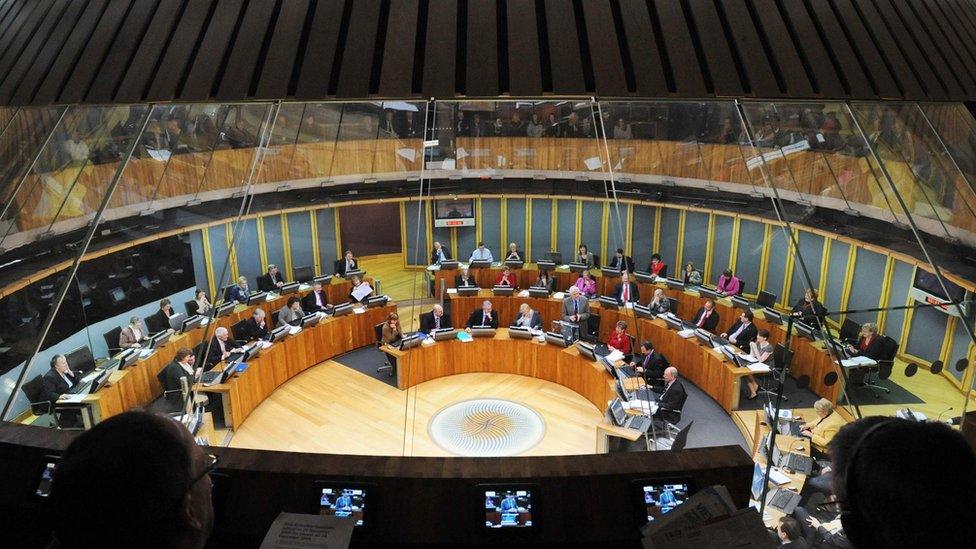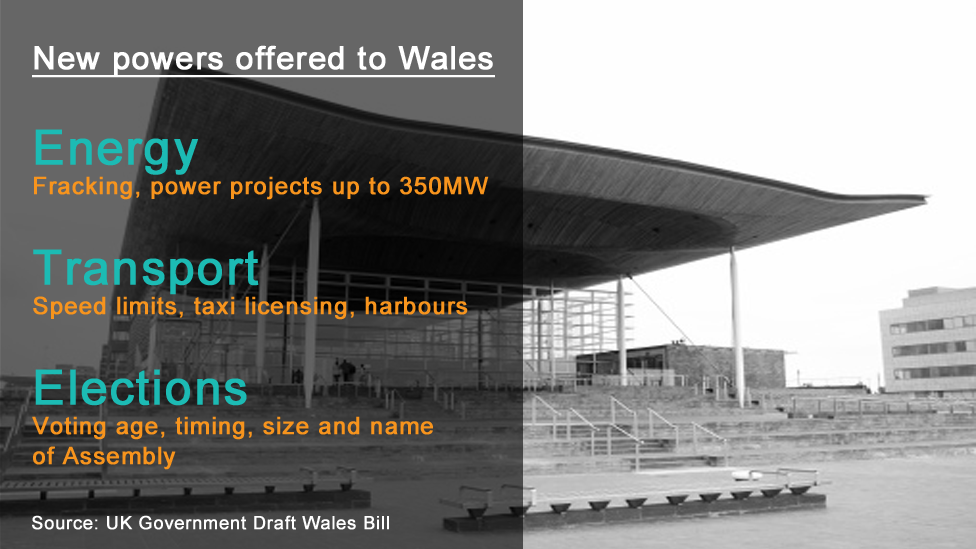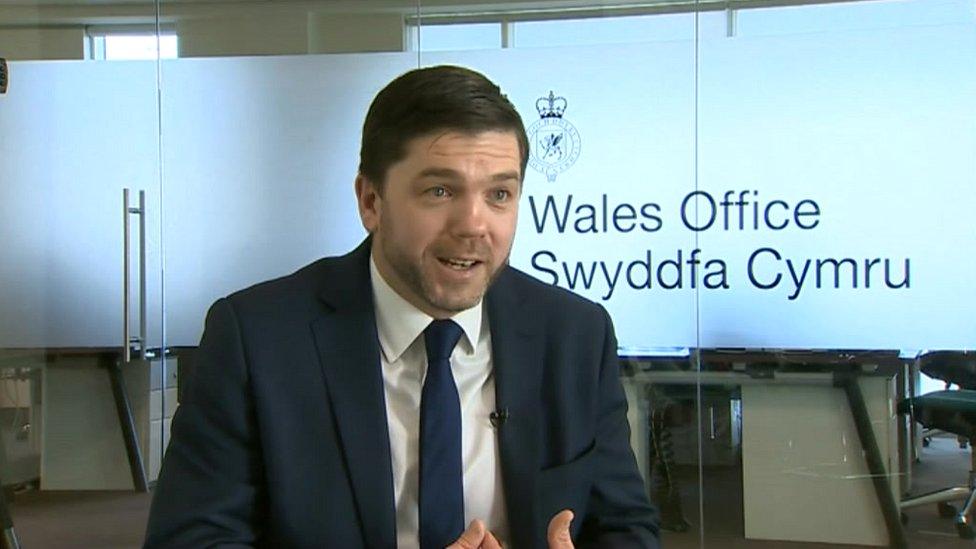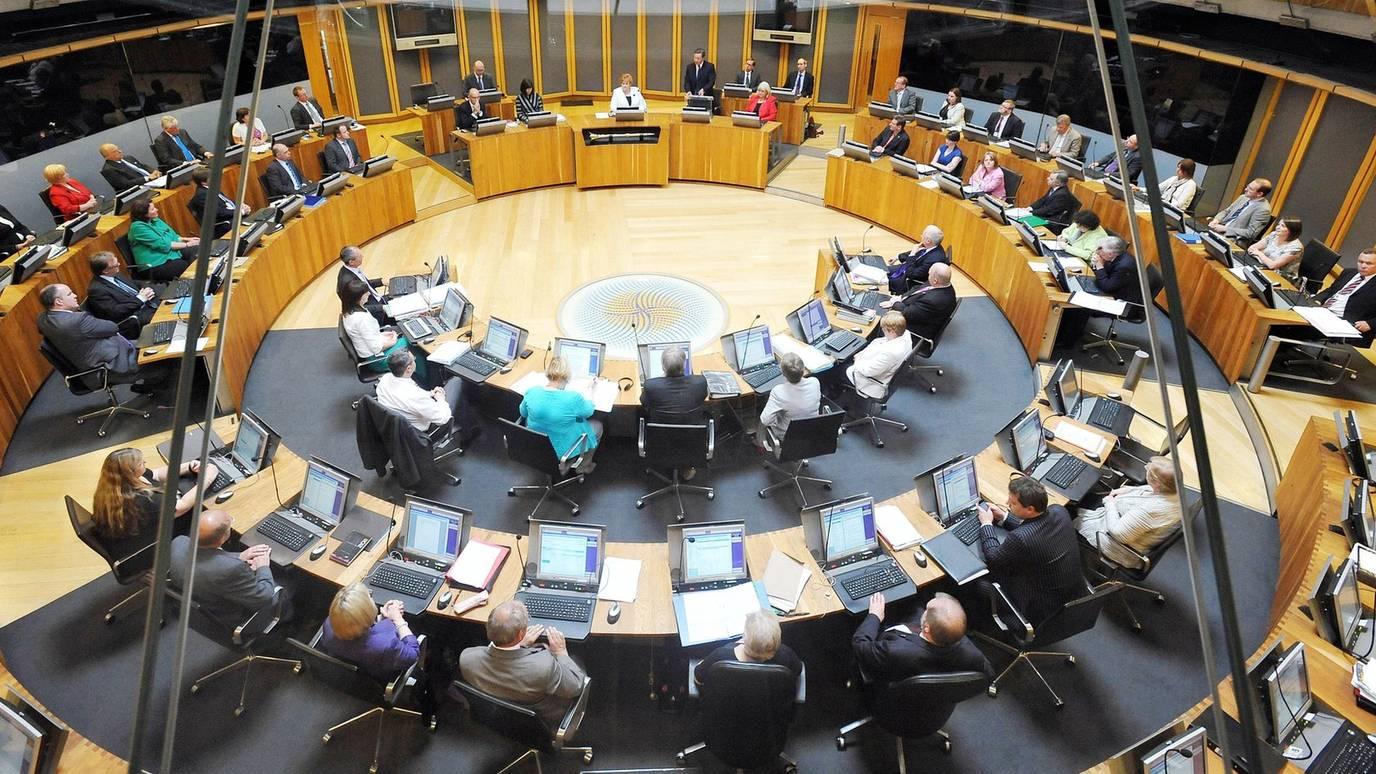The Wales Bill: What is it and how will it change?
- Published

The draft Wales Bill was an attempt to clear up the Welsh political settlement - but its detractors said it did the opposite
The Wales Bill has dominated the nation's politics since its publication in draft last autumn.
It followed a process where the Welsh Secretary Stephen Crabb tried to find consensus among the political groups in the assembly and at Westminster.
Despite the attempt to build consensus the bill has resulted in some fiery rhetoric - with talk of "English vetos" and Lord Elis-Thomas even suggesting it was the worst attempt to re-write the constitution he had ever seen.
Mr Crabb has now proposed substantial changes. But what is the draft Bill, why is it so controversial and how does it affect you?

What is the draft Wales Bill?
In simple terms, the Bill takes the law that governs the assembly and Welsh devolution and turns it inside out.
Currently Wales' devolved powers are explicitly set out in a list of so-called "conferred" powers.
The Wales Bill tries to move Wales to a system more like the Northern Ireland assembly and the Scottish parliament.
There, powers kept by Westminster are defined in a set of "reservations". Everything else is assumed to be devolved.
Consensus in the Welsh political scene has been that Wales should move to that way of running things.
It is meant to be clearer and avoid the kind of rows that have landed Welsh legislation in the Supreme Court.
The Bill also offers new powers to the assembly over its own affairs - such as how elections take place and the institution's name - as well as on energy and transport.

So what has got people so upset?
The Bill's critics argue the legislation, as it stood, does not achieve Mr Crabb's stated aim of producing a clearer settlement that would stand the test of time.
Opposition politicians and academics have said it could lead to a reversal of devolution and give UK ministers a "veto" over Welsh decisions.
Some have argued it could create even more potential Supreme Court challenges.
There are three specific areas which have attracted criticism:
The size and content of the reservation list: The reservation list is pretty sizeable, with at least 260 reservations in the Bill. There were concerns it was too long, and First Minister Carwyn Jones complained of "anomalies" among the individual powers. For instance, the list would withhold licensing opencast mining to Westminster, but devolve land restoration.
Minister of crown consents: This is where Welsh ministers must seek consent from UK ministers for new assembly laws which affect something the UK government remains responsible for. They exist already where assembly laws put duties on non-devolved bodies. But there were fears the way they are implemented in the draft Bill gives rise to an "English veto" on Welsh laws, as Mr Jones suggested, with the consents effectively extended.
Necessity tests: These would be needed to be passed if the assembly would make changes to criminal or civil law to enforce its new laws. The assembly would need to show the new law was necessary to perform a devolved function. This was needed, the UK government argued, to preserve the single jurisdiction between England and Wales while allowing the assembly to still make effective laws. There were concerns that the test would reduce the assembly's ability to make law, create complexity and uncertainty, give rise to legal challenges and even freeze policy development.

Stephen Crabb
What has happened now?
Stephen Crabb has confirmed the Bill will be delayed until May at the earliest and revealed substantial changes to the areas complained about.
The necessity test will not happen and Mr Crabb will look at shortening the reservation list.
There are changes for minister of crown consents too.
Mr Crabb said he will look at passing control for some of these consents, relating to responsibilities which step into devolved territory still held by UK ministers, to Wales.
There are areas like teachers' pay, which is still controlled from Westminster although education is run from Cardiff.
He has also launched a working group to look at distinct arrangements needed for the growing body of Welsh law - but has stopped short of backing a separate Welsh legal jurisdiction.
Carwyn Jones and others have said the lack of a provision for a Welsh jurisdiction has contributed to the Bill's complexity.
Is this a surprise?
Not entirely. Mr Crabb has indicated for some time now that he was open to changes to the Bill.
And Sunday's conclusions by the Welsh Affairs committee may lead some to think he had little room for manoeuvre.
But there had been no indication Mr Crabb would drop the necessity test entirely.
Is it enough to satisfy his critics?
It is a little too early to say for definite.
Mr Jones did not appear to jump for joy - he said it was "an avoidable delay to clear up an avoidable mess".
But he did say there was an opportunity, "if the will is truly there", to repair the damage done by a flawed process.
Why does it matter?
That is a good question. This is about how Wales makes its laws and governs itself.
If the people we elect are unhappy with the system they have in front of them it could get in the way of everything else the assembly members are meant to be doing - health and education for instance.
And it is a chance too for those boring, snoring constitutional questions to be cleared away, at least for a time.
The delay does mean that, for now, nothing changes in terms of the kind of laws that the assembly can make.
Promised new powers for the Welsh government may take longer than originally intended.
But the colour of the pavement will not change because the Wales Bill will not be passed before the summer and the wheels of Welsh government will continue to turn.
- Published29 February 2016

- Published28 February 2016
